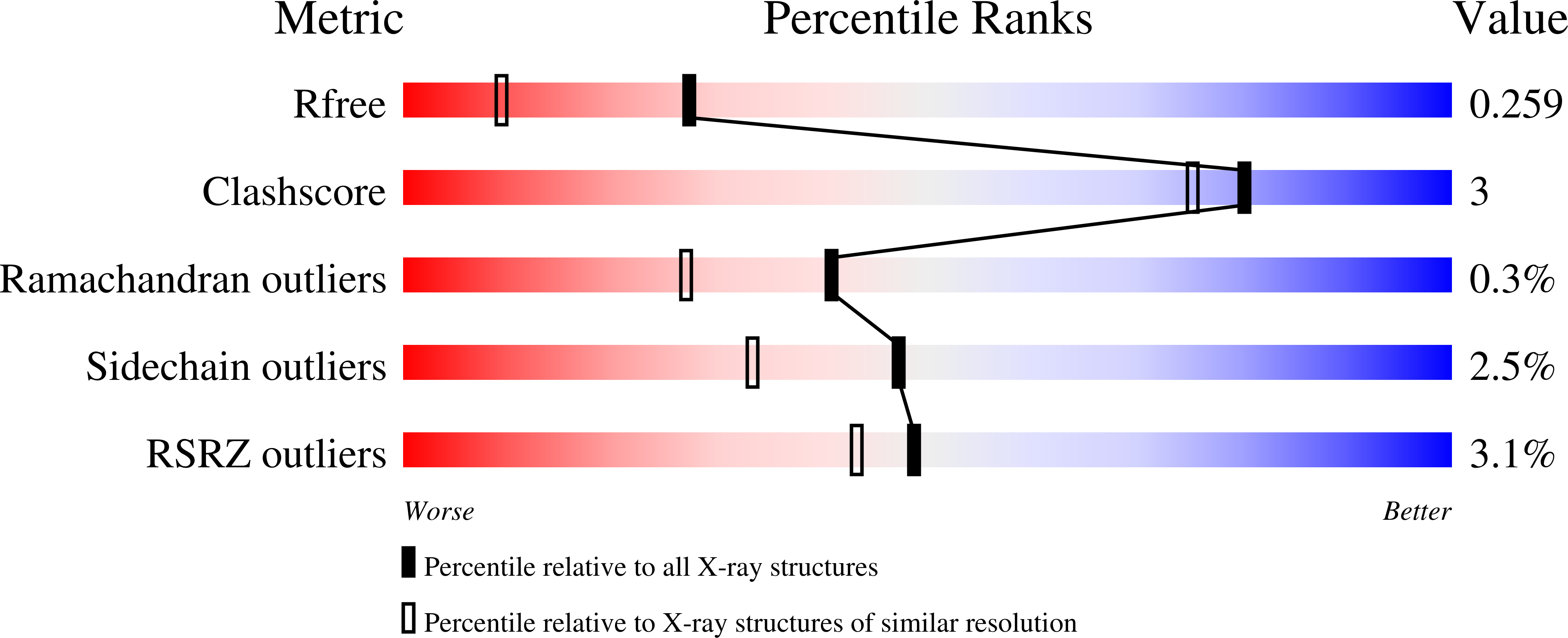Inhibition of Clostridium difficile TcdA and TcdB toxins with transition state analogues.
Paparella, A.S., Aboulache, B.L., Harijan, R.K., Potts, K.S., Tyler, P.C., Schramm, V.L.(2021) Nat Commun 12: 6285-6285
- PubMed: 34725358
- DOI: https://doi.org/10.1038/s41467-021-26580-6
- Primary Citation of Related Structures:
7LOU, 7LOV - PubMed Abstract:
Clostridium difficile causes life-threatening diarrhea and is the leading cause of healthcare-associated bacterial infections in the United States. TcdA and TcdB bacterial toxins are primary determinants of disease pathogenesis and are attractive therapeutic targets. TcdA and TcdB contain domains that use UDP-glucose to glucosylate and inactivate host Rho GTPases, resulting in cytoskeletal changes causing cell rounding and loss of intestinal integrity. Transition state analysis revealed glucocationic character for the TcdA and TcdB transition states. We identified transition state analogue inhibitors and characterized them by kinetic, thermodynamic and structural analysis. Iminosugars, isofagomine and noeuromycin mimic the transition state and inhibit both TcdA and TcdB by forming ternary complexes with Tcd and UDP, a product of the TcdA- and TcdB-catalyzed reactions. Both iminosugars prevent TcdA- and TcdB-induced cytotoxicity in cultured mammalian cells by preventing glucosylation of Rho GTPases. Iminosugar transition state analogues of the Tcd toxins show potential as therapeutics for C. difficile pathology.
Organizational Affiliation:
Department of Biochemistry, Albert Einstein College of Medicine, Bronx, NY, USA.





















